استثمر في العراق
العراق: وجهة جذابة للمستثمرين العالميين
غني بالموارد الطبيعية ومليء بالفرص
بفضل موارده الطبيعية الهائلة، يصنف العراق ضمن الدول العشر الأوائل في العالم من حيث الثروات الطبيعية، مما يوفر فرصاً لا مثيل لها للنمو في قطاعات الطاقة التقليدية والمجالات الناشئة مثل الطاقة المتجددة والتقنيات النظيفة. تحت أرضه، تكمن احتياطيات وفيرة من النفط، والغاز الطبيعي، والفوسفات، والكبريت، مما يضع العراق كمركز استراتيجي للاستثمار طويل الأجل، وتطوير الطاقة المستدامة، والابتكار التكنولوجي.
يُعدّ العراق قوة مهيمنة في مشهد الطاقة العالمي، حيث يحتل المرتبة الثانية كأكبر منتج للنفط الخام داخل أوبك، ويمتلك خامس أكبر احتياطي نفط خام مؤكد في العالم. تُشكل صادرات النفط الخام ما يقرب من 95% من إيرادات الدولة، مما يؤكد الدور المركزي لهذا القطاع في الاقتصاد العراقي. وبمتوسط إنتاج بلغ 4.2 مليون برميل يومياً خلال العام الماضي، يُعتبر العراق سادس أكبر منتج للنفط في العالم، وثاني أكبر منتج في أوبك، بعد المملكة العربية السعودية فقط.
على الرغم من هذا الإنتاج المثير للإعجاب، لم يبدأ العراق بعد في استغلال كامل إمكاناته. لا يزال جزء كبير من حقول النفط العراقية غير مطور، مما يضع البلاد كواحدة من آخر المناطق الحدودية المتبقية باحتياطيات ضخمة وغير مستكشفة. حالياً، يوفر النفط حوالي 94% من احتياجات العراق من الطاقة، وتتركز أصول النفط والغاز الأكثر إنتاجية في البلاد في حزام غني على طول حدودها الشرقية. تشمل هذه المنطقة تسعة حقول "عملاقة جداً"—يحتوي كل منها على أكثر من 5 مليارات برميل—و22 حقلاً "عملاقاً" باحتياطيات تتجاوز مليار برميل. ووفقاً لمحللين مستقلين، يستضيف جنوب شرق العراق أعلى تركيز في العالم من الحقول العملاقة جداً، والتي تمثل 70-80% من احتياطيات العراق المؤكدة. بالإضافة إلى ذلك، يقع ما يقرب من 20% من موارد البلاد النفطية في الشمال، حول مناطق رئيسية مثل كركوك، والموصل، وخانقين.
ومع ذلك، ومع استمرار تطور أسواق الطاقة العالمية، يركز العراق بشكل متزايد على الطاقة المتجددة. فبفضل موارده من الطاقة الشمسية وطاقة الرياح، وهدف الحكومة لتوليد 12 جيجاوات من الطاقة المتجددة بحلول عام 2030، يسير العراق بخطى ثابتة نحو أن يصبح رائداً في إنتاج الطاقة المستدامة. وتعد هذه المبادرات جزءاً من استراتيجية أوسع لتنويع محفظة الطاقة العراقية، والحد من الأثر البيئي، والمساهمة في الجهود العالمية لمواجهة تغير المناخ.
من خلال الجمع بين موارد الطاقة التقليدية الهائلة والدفع الجريء نحو قطاع الطاقة المتجددة، يقف العراق على مفترق طرق بين الطاقة التقليدية ومستقبل الطاقة النظيفة. وهذا يجعل البلاد ليس مجرد لاعب رئيسي في صناعة الوقود الأحفوري، بل أيضاً لاعباً صاعداً.
العراق: بلد الشباب وإمكانات الطاقة
بنسبة تزيد عن 60% من سكانه تحت سن 22 عاماً، يُعدّ العراق واحداً من أكثر الدول شباباً في المنطقة.
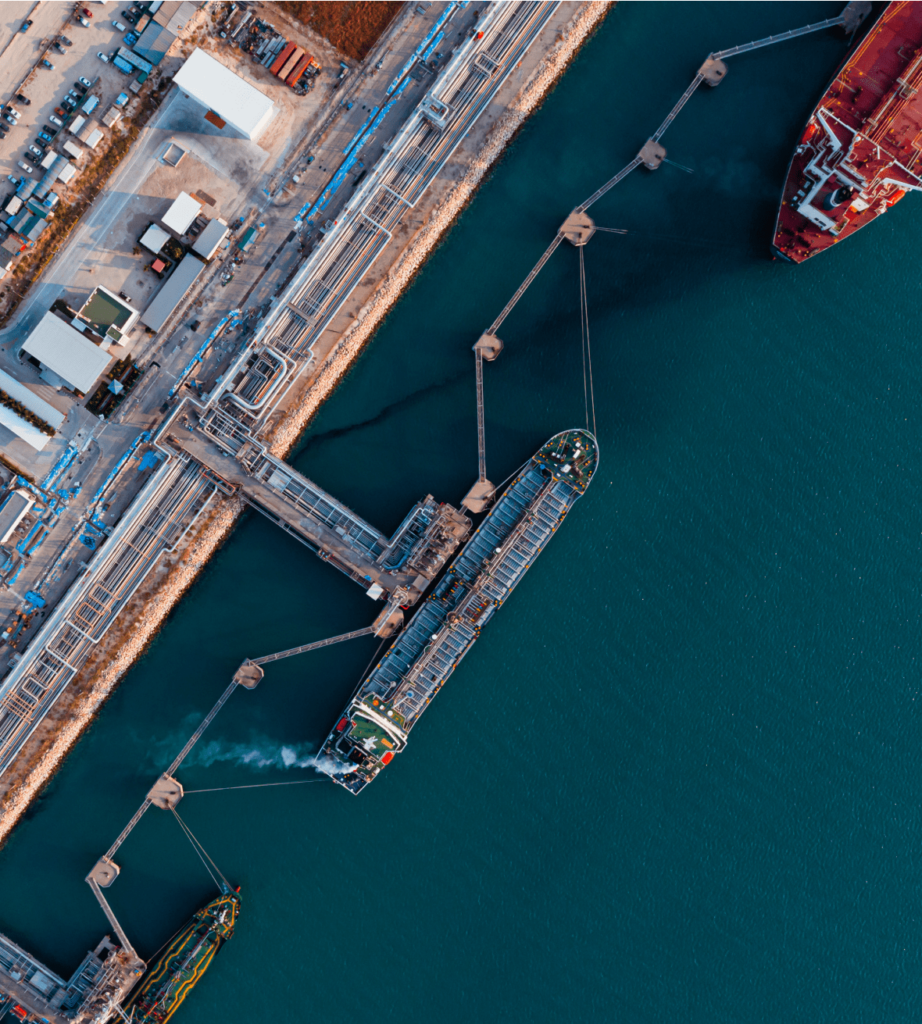
يخضع العراق، الذي يضم أكثر من 42 مليون نسمة، لعملية تطوير سريعة، ومعها يزداد الطلب على الطاقة بشكل كبير. وبينما تواصل البلاد نموها، فإنها تواجه عدداً من تحديات الطاقة الحاسمة:
- عدم كفاية توليد الكهرباء وقدرة نقلها لتلبية الطلب المتزايد.
- ارتفاع الخسائر الفنية والتجارية عبر شبكات التوزيع.
- الاعتماد على الوقود الأحفوري المستورد، وخاصة الغاز الطبيعي من الدول المجاورة.
على الرغم من هذه التحديات، يمثل العراق سوقاً ذات إمكانات كبيرة. فمع إجمالي ناتج محلي يتجاوز 264 مليار دولار وطلب محلي سريع النمو على الطاقة، تواجه البلاد عجزاً مستمراً في الكهرباء لا يقل عن 11-13 جيجاوات. هذه الفجوة، بالإضافة إلى جهود التحديث التي تقودها الحكومة، توفر أرضاً خصبة للاستثمار الأجنبي عبر مجموعة واسعة من قطاعات الطاقة.
تحول نحو الاستدامة
ويتم دعم هذا التحول من قبل العديد من المؤسسات المالية العالمية - بما في ذلك البنك الدولي، وصندوق النقد الدولي، وبرنامج الأمم المتحدة الإنمائي - التي تمول مشاريع حيوية في مجال الطاقة الشمسية، ومعالجة المياه والمياه العادمة، وتحديث البنية التحتية للنقل في جميع أنحاء البلاد.
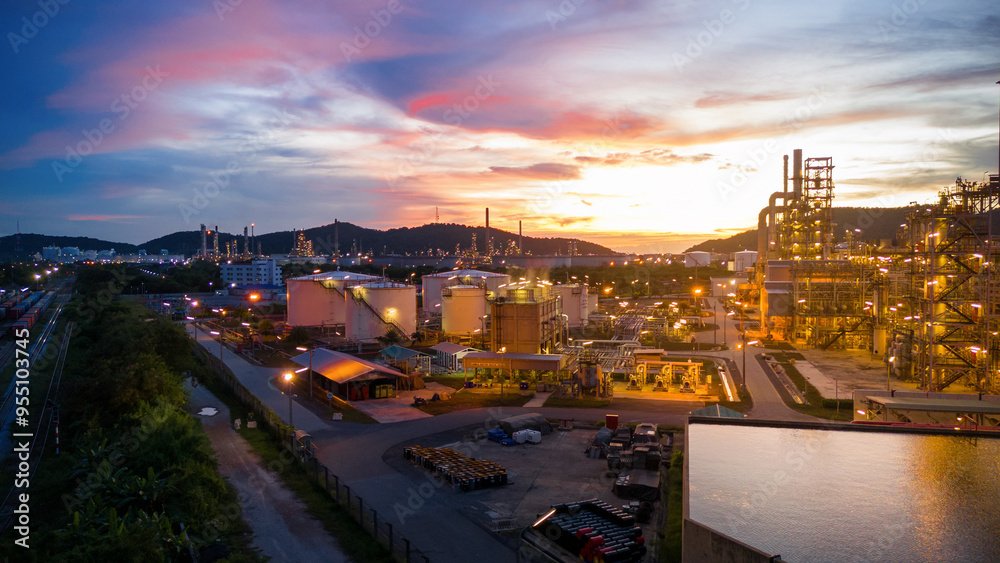
طريق التنمية:
طريق التنمية: ممر العراق التجاري ذو الرؤية المستقبلية
في مايو 2023، أطلق رئيس الوزراء العراقي رسمياً مشروع "طريق التنمية" - المعروف أيضاً باسم القناة الجافة - وهي مبادرة بنية تحتية تاريخية من شأنها أن تحول العراق إلى مركز لوجستي محوري للمنطقة.
يهدف هذا المشروع الطموح إلى ربط تركيا في الشمال بالخليج العربي في الجنوب من خلال شبكة حديثة وعالية السعة من خطوط السكك الحديدية والطرق السريعة، مما يؤسس طريقاً تجارياً سريعاً وفعالاً بين أوروبا ومنطقة الخليج.
سيسهل طريق التنمية حركة البضائع من أوروبا إلى الخليج والعكس، مما يقلل بشكل كبير من وقت العبور وتكاليف الشحن. وسيمتد الممر لأكثر من 1,200 كيلومتر، عابراً العراق من مدينة البصرة الساحلية الجنوبية إلى الحدود التركية، ويرتبط بشبكات النقل الأوروبية الأوسع.
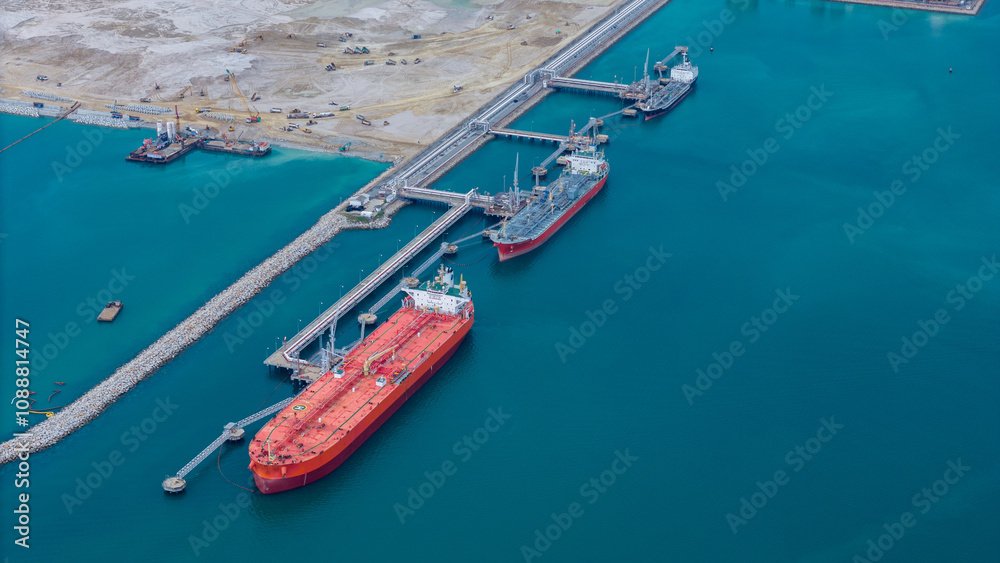
تقدر قيمة المشروع بحوالي 17 مليار دولار، ومن المتوقع أن يتم تنفيذه على مراحل، حيث يبدأ البناء في عام 2024 ومن المقرر أن يكتمل بحلول عام 2028 - وهو جدول زمني سريع بشكل ملحوظ لمشروع بهذا الحجم. وبمجرد أن يصبح جاهزاً للعمل، لن يعزز طريق التنمية جهود التنويع الاقتصادي في العراق فحسب، بل سيقوي أيضاً التكامل الإقليمي، ويولد آلاف فرص العمل، ويطلق فرصاً استثمارية جديدة في قطاعات اللوجستيات، والبنية التحتية، والمناطق الصناعية على طول مساره.
تُشير هذه المبادرة الرائدة إلى التزام العراق المتجدد بالتحديث وبروزه كجسر استراتيجي بين الشرق والغرب.
طموحات العراق النفطية
تعزيز الإنتاج مع دفع جهود التقاط الغاز
أكدت وزارة النفط العراقية مجدداً رؤيتها الاستراتيجية لتوسيع طاقة البلاد الإنتاجية من النفط، واضعةً هدفاً طموحاً بالوصول إلى 6 ملايين برميل يومياً في غضون السنوات الخمس المقبلة.
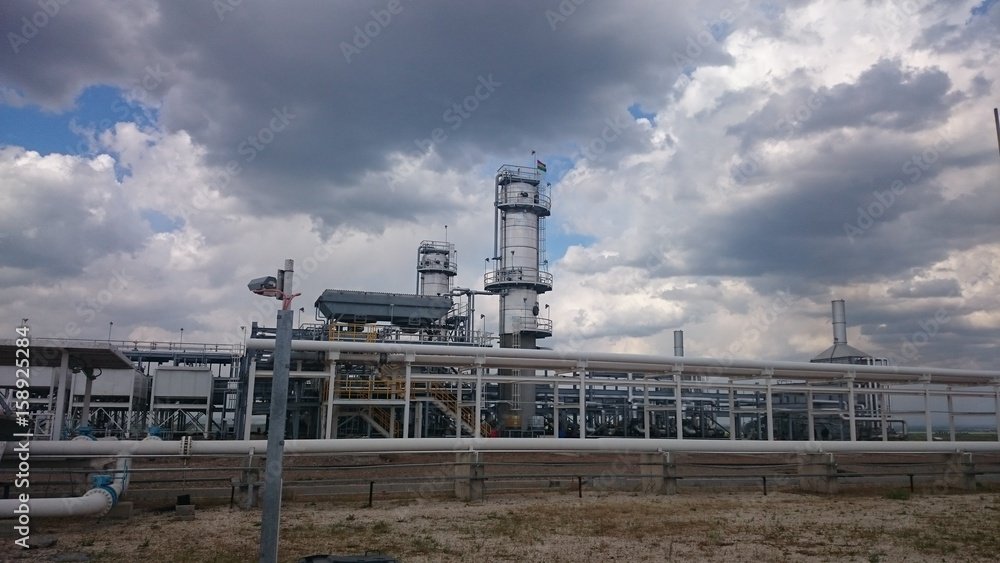
يعكس هذا الهدف خطة العراق طويلة الأمد لتعزيز دوره في أسواق الطاقة العالمية، مع تحقيق أقصى قيمة ممكنة لموارده الهيدروكربونية الهائلة.
جاء الإعلان في أعقاب اجتماع رفيع المستوى حضره وكلاء الوزارة وكبار ممثلي شركات النفط الوطنية الرائدة والدوائر الفنية. لم تتركز المناقشات على زيادة إنتاج النفط الخام فحسب، بل على التزام الوزارة بدفع جهود التقاط واستغلال الغاز المصاحب - وهي خطوة حاسمة نحو الحد من حرق الغاز وتحسين الاستدامة البيئية عبر حقول النفط في العراق.
وبينما يعمل العراق على تحقيق أهداف الإنتاج هذه، ستكون الاستثمارات الموازية في تحديث البنية التحتية، ومشاريع استعادة الغاز، والشراكات الدولية مفتاحاً لإطلاق المرحلة التالية من النمو في قطاع الطاقة بالبلاد.
العراق يوسع مشاريع الطاقة المتجددة من خلال الشراكات العالمية
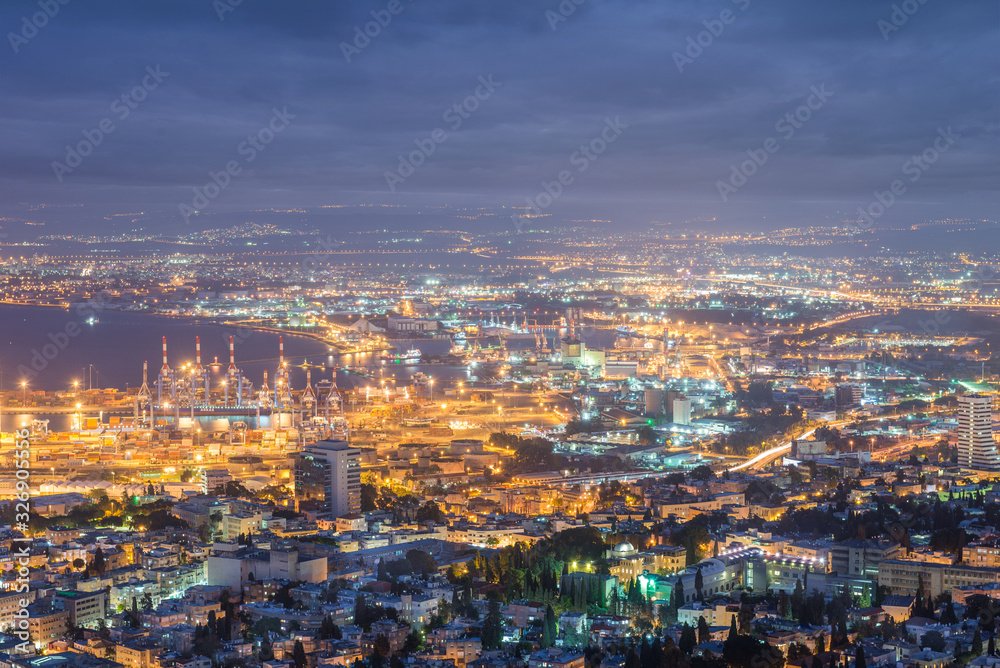
خطت وزارة الكهرباء العراقية خطوات كبيرة نحو تعزيز قدرة البلاد من الطاقة النظيفة من خلال سلسلة من الاتفاقيات الدولية. ووفقاً للمتحدث باسم الوزارة، أحمد موسى العبادي، فإن هذه الجهود هي جزء من استراتيجية حكومية أوسع لتحديث الشبكة الوطنية وتنويع مزيج الطاقة في العراق.
ومن بين الاتفاقيات الرئيسية، وقعت الوزارة عقوداً مع شركتي PowerChina وTotalEnergies لتزويد الشبكة الوطنية بـ1,000 ميجاوات من الكهرباء.
وبالتوازي، ستوفر شراكة كبرى مع شركة "مصدر" Masdar، الرائدة في مجال الطاقة المتجددة ومقرها الإمارات العربية المتحدة، 1,000 ميجاوات من الطاقة الشمسية لأربع محافظات عراقية في المرحلة الأولى - قبل التوسع إلى مناطق إضافية.
بالإضافة إلى ذلك، سيشهد اتفاق حديث مع شركة Scatec النرويجية (المشار إليها باسم Ascot في بعض المصادر) تطوير محطات طاقة شمسية بسعة إجمالية تبلغ 525 ميجاوات. وأكد العبادي أن هذه المشاريع تمثل بداية أجندة العراق طويلة الأمد للطاقة النظيفة.
سيبدأ العمل في هذه الاستثمارات بمجرد الانتهاء من الإجراءات الإدارية والقانونية. وقد حددت الوزارة هدفاً للوصول إلى 7,500 ميجاوات من سعة الطاقة المتجددة خلال المرحلة الأولى من برنامجها الوطني للطاقة النظيفة.
أبرز ملامح القطاع
- 99% من عائدات التصدير من النفطيشكل النفط أكثر من 99% من إجمالي صادرات العراق، مما يؤكد اعتماد البلاد الكبير على قطاع النفط.
- 85% من الميزانية الحكومية يتم تمويل ما يقرب من 85% من الميزانية الحكومية للعراق من عائدات النفط والغاز.
- 42% مساهمة في الناتج المحلي الإجمالي من النفط والغازيساهم قطاع النفط والغاز بنحو 42% في الناتج المحلي الإجمالي للعراق.
- 115.7 مليار دولار من صادرات النفط (2022في عام 2022، بلغت عائدات صادرات العراق النفطية حوالي 115 مليار دولار
- 4.6 مليون برميل يومياً من الإنتاجوصل إنتاج العراق من النفط إلى أكثر من 4.6 مليون برميل يومياً.
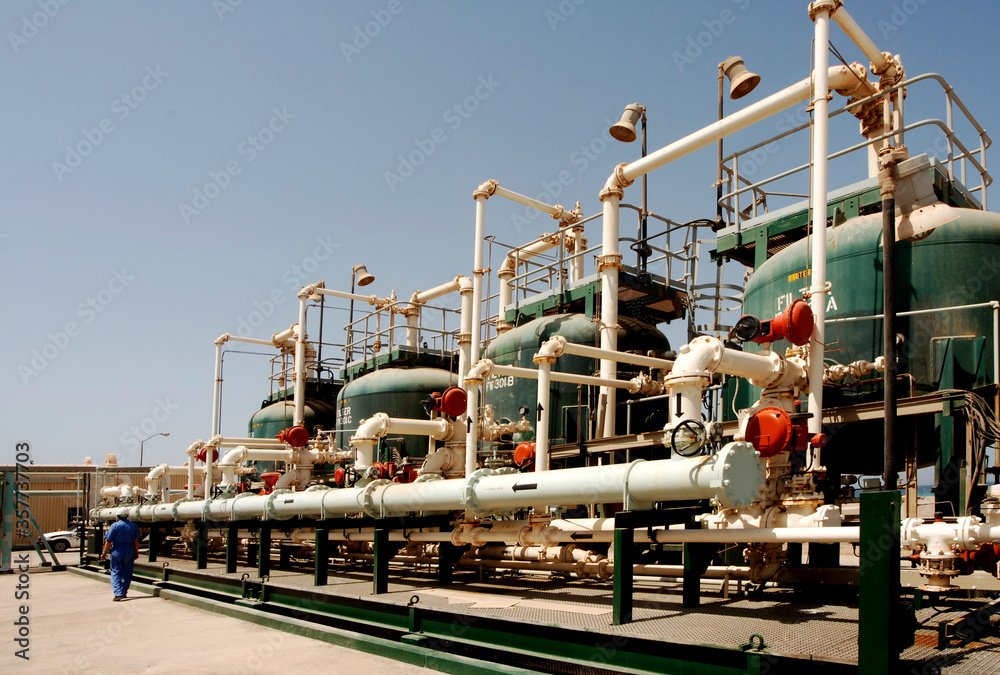
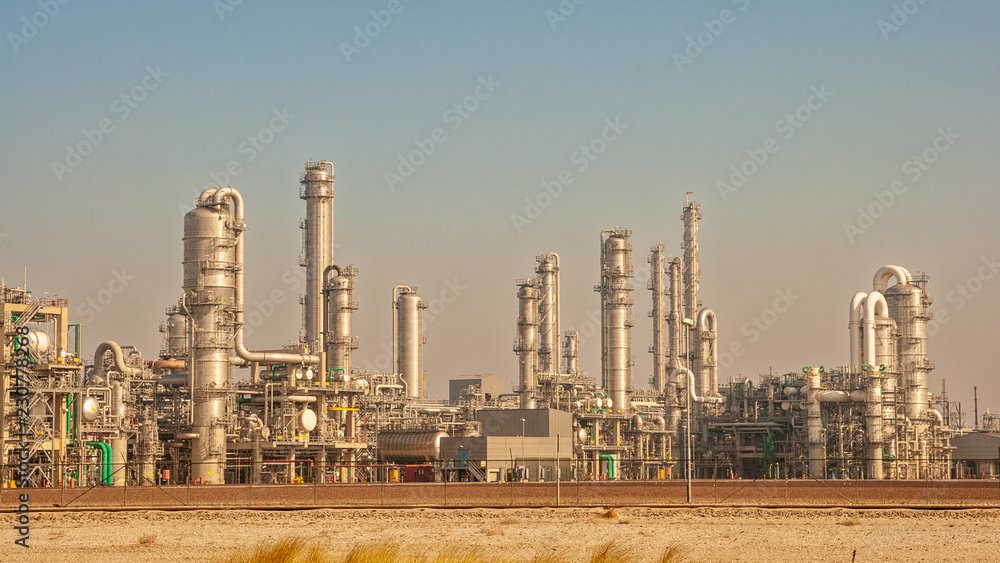
- 1,255 كيلووات/ساعة نصيب الفرد من استهلاك الكهرباءاعتباراً من عام 2022، بلغ استهلاك الفرد من الكهرباء في العراق 1,255 كيلووات/ساعة، مما يشير إلى وجود مجال للنمو مقارنة بالدول المجاورة.
- 1.7 مليار دولار كنفقات رأسمالية لمشاريع الطاقة (2024)خصص العراق حوالي 1.7 مليار دولار كنفقات رأسمالية لمشاريع الطاقة المتقدمة في عام 2024.
- 23 شركة طاقة دولية عاملةتعمل شركات نفط وطاقة دولية كبرى، بما في ذلك بي بي، وشل، وإكسون موبيل، وتوتال إنرجيز، وإيني، بنشاط في العراق.
- أكثر من 125,000 موظف في وزارة النفطتوظف وزارة النفط العراقية أكثر من 125,000 فرد، مما يسلط الضوء على أهمية القطاع في التوظيف على المستوى الوطني.

